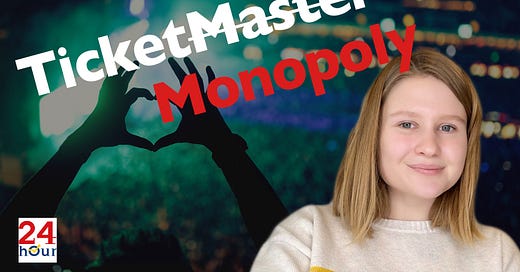Cities in Czech Republic benefiting from the monopoly, Ticketmaster
Four main cities benefit from the event ticketing monopoly
An upcoming US tour of Taylor Swift shakes Ticketmaster off with insane admission costs of up to $22,000. Twenty-six Swift fans and three months later, Ticketmaster finds itself in the hot seat of the US Senate. Let's dive deeper into the drama surrounding the ticket business provider and see which cities in Czech Republic stand to benefit from this mon…
Keep reading with a 7-day free trial
Subscribe to 24Hour Journal to keep reading this post and get 7 days of free access to the full post archives.



